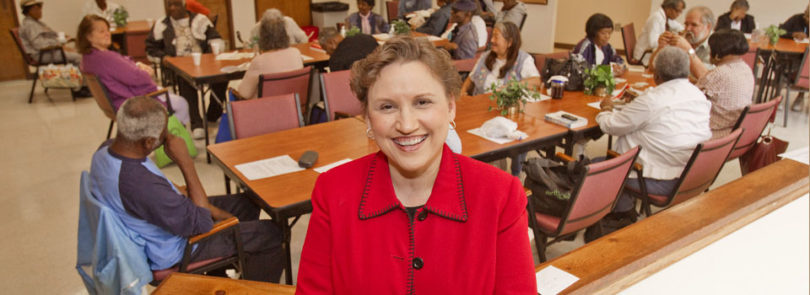As people age out of the workforce and into retirement, the consequences of obesity become more and more apparent. Obesity accelerates and exacerbates diseases of aging, such as heart disease, while at the same time robbing older adults of mobility and independence, among other costs.
For more than a decade, Mary Ann Johnson, the Bill and June Flatt Professor of Foods and Nutrition, has been exploring the factors that put older adults at risk for obesity; and as a result she has designed and tested interventions to help them lead healthier lives. Working with the Athens Community Council on Aging and senior centers across the state, she has found that it is never too late for older adults to improve their health.
One study, a four-month series of classes that included chair-based exercises and encouraged participants to record their number of daily steps with a pedometer, helped them increase their physical activity by 26 percent. As a result, the number of participants reporting good physical function increased from 17 percent to 25 percent. Another series of classes focusing on healthful eating produced a 21-percent increase in the number of participants who consumed at least seven servings of fruits and vegetables daily. “We’ve seen this over and over,” Johnson said. “Older people are willing to change; they just need a little help, guidance, and support.”





